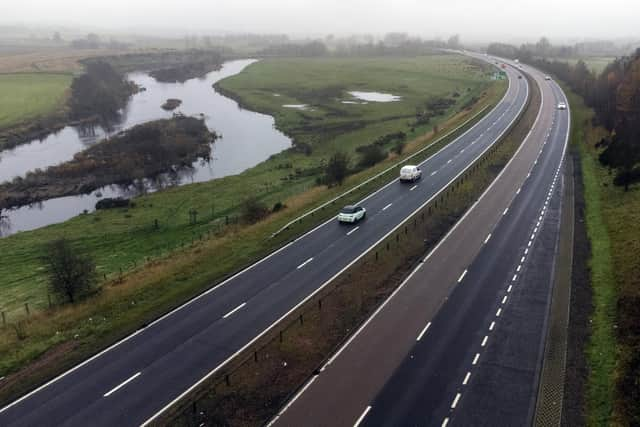Calls for legal probe as Scottish ministers accused of failure to quantify climate impacts of infrastructure plan
The latest Infrastructure Investment Plan (IIP), which was published in February 2021 and covers the five years to 2026, sets out around £26 billion of financing for national programmes – including the massive A9 dualling scheme.
But questions have been raised over the Scottish Government’s compliance with its legal duty to carry out and publish assessments of the climate impacts of projects in the strategy, as set out in Section 94A of the Climate Change (Scotland) Act 2009.
Advertisement
Hide AdAdvertisement
Hide AdThe Environmental Rights Centre for Scotland (ERCS), a charity set up in 2020 to support individuals and communities in protecting the planet, wrote to the Scottish Government for an explanation on behalf of a client who flagged the potential breach.
In his reply, then net zero, energy and transport secretary Michael Matheson said: “It is my view that the Scottish ministers have discharged their duty under section 94A of the Climate Change (Scotland) Act 2009.”
He referred to the plan’s objectives and findings from the Strategic Environmental Assessment (SEA) report, which states: “The assessment identified that, overall, significant benefits were likely to arise for climatic factors, air quality, water, population and human health, biodiversity, cultural heritage, and material assets.”
However, the response was deemed “unsatisfactory” and the case has now been sent to Environmental Standards Scotland (ESS) for further investigation.
The recently established independent watchdog has powers to take enforcement action where laws are found to have been breached.


“When the Scottish Government publishes an infrastructure investment plan it has a legal duty to also publish an assessment of the extent to which investment in accordance with the plan is expected to contribute to the meeting of Scotland’s emissions reduction targets,” said Ben Christman, in-house solicitor at ERCS.
“The Scottish Government published its Infrastructure Investment Plan in February 2021. No climate assessment of that plan has been published.
“The IIP document explains that the Scottish Government still had to develop the methodology for carrying out that assessment.
Advertisement
Hide AdAdvertisement
Hide Ad“The Scottish Government has breached its legal duty to publish an assessment of the impact of infrastructure investment on emissions.


“We have had no indication from the Scottish Government that it plans to correct this.
“The Scottish Government’s blatant flouting of the law brings their commitment to climate justice into question.”
He said it was “deeply concerning” that decisions on infrastructure investment in Scotland – such as large roads projects – are being taken without first considering their effect on the planet.
He added: “Infrastructure projects can have significant climate impacts and we are in a climate emergency where every tonne of greenhouse gases matters.
“If the costs of taking legal action were not so prohibitive in Scotland, ERCS would likely challenge the Scottish Government directly in court on this matter.
“This issue demonstrates why we need an environmental court or tribunal which provides access to justice on environmental matters.”